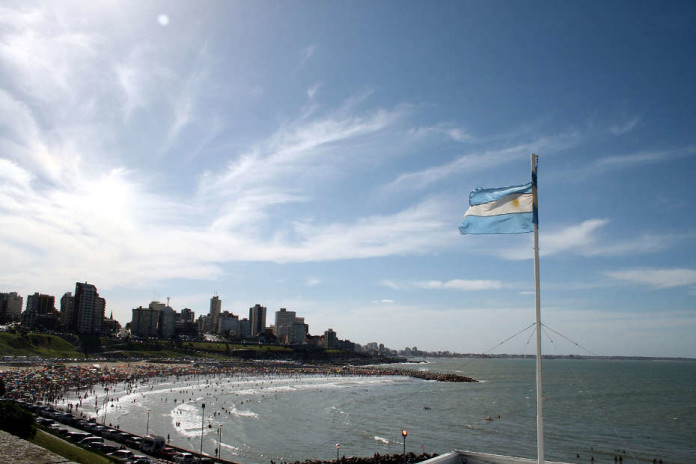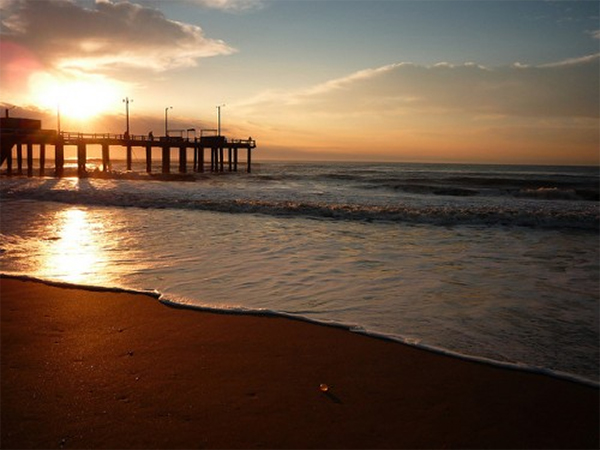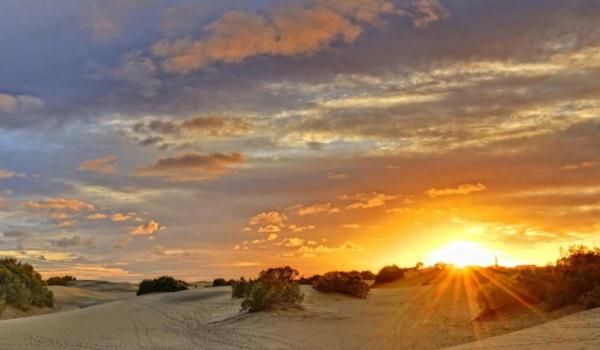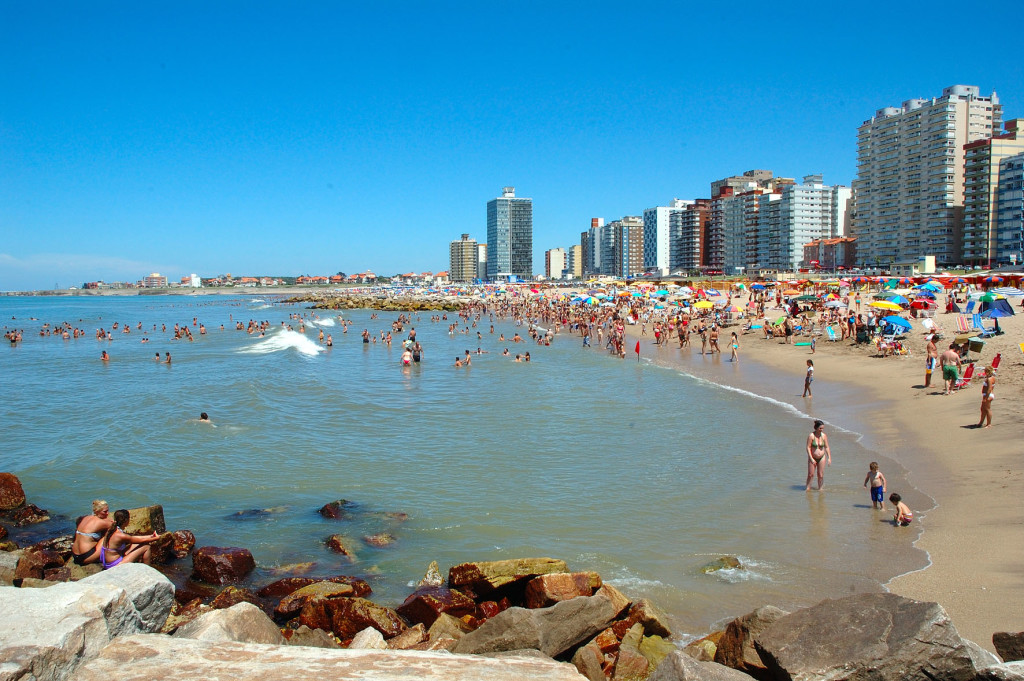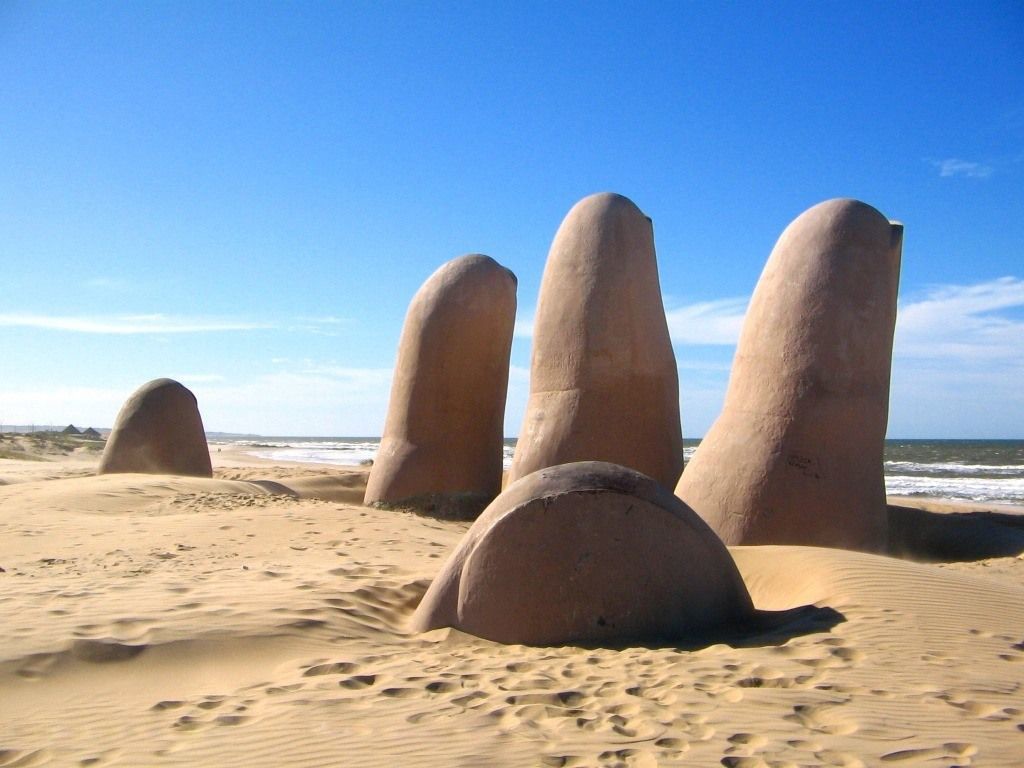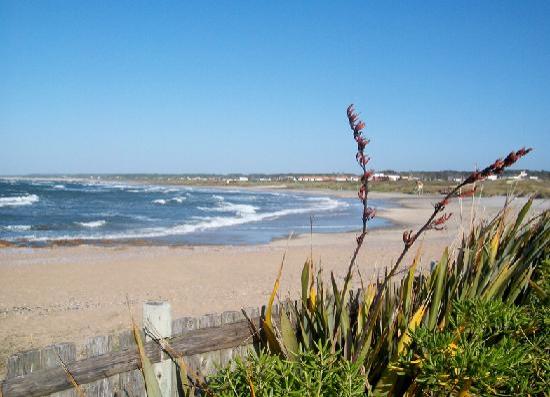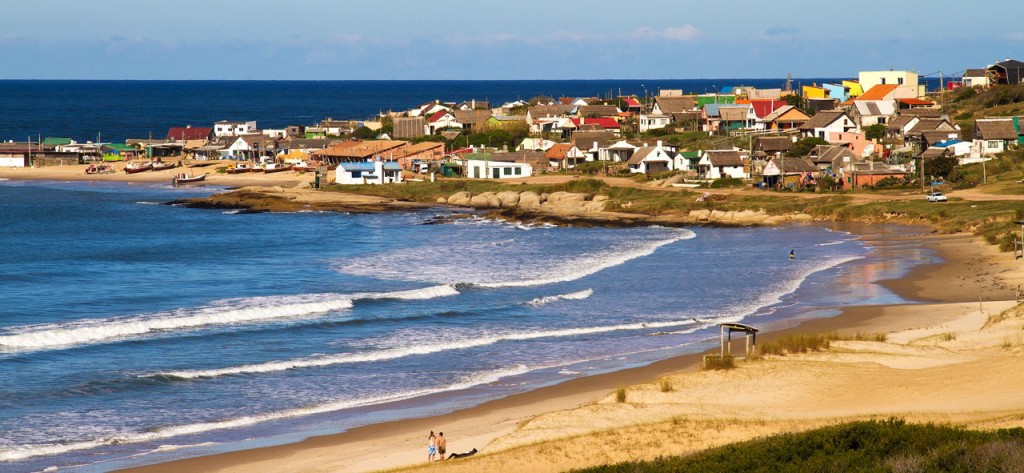We love Buenos Aires for its nonstop action, but sometimes a break from the big city is just what you need.
So for a getaway from your summer courses in Argentina, your university Spanish classes, or even your Master’s program in International Political Economy … look no further. Check out our list of the best beaches in Argentina (and Uruguay)!
BEACHES IN ARGENTINA
How to get there: All of Argentina’s beaches are located on the Atlantic coast, a few hours’ bus ride from Buenos Aires. Through the service Plataforma 10, you can buy bus tickets to destinations around the country.
Mar del Plata (415km / about 5:15 hours by bus)
“Mardel” (pop. 614,000) is the classic Argentine beach destination – a city popular with porteños and with the rest of the country, too. On summer weekends, it gets quite crowded, so if you’re looking for relaxing beaches or alone time, you might think about going somewhere else. One of its draws is a great nightlife and cultural scene, as well as architectural elegance. In the 1920s and 30s, Mar del Plata was quite the glamorous resort town. If you go in the week or during off-season to enjoy all its splendor, the crowds disperse and you’ll find a more relaxed vibe (as well as more accessible prices).
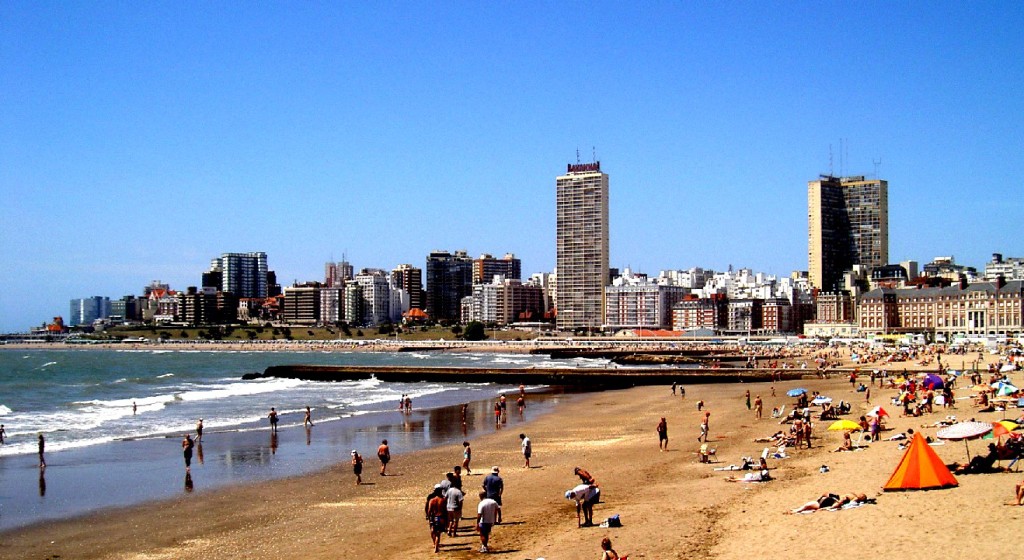
Pinamar (357km / about 4:30 hours by bus)
Pinamar is a popular, laid-back seaside town (pop. 40,000) just north of Mar del Plata. It’s known for its distinctive architecture, with houses set in open gardens, and the surrounding pine forests. There’s also an expansive area of sand dunes known as “La Frontera.”
Thank you, Dave, for this great picture! 🙂 You can check out Dave’s Blog “MountainLeon” here.
Villa Gesell (380km / about 5 hours by bus)
Smaller and less flashy than Pinamar and Mar del Plata, Villa Gesell is a popular destination for younger visitors (usually in their 20s). It has a wood plank boardwalk along the beach and is known for its music scene and outdoor activities in the summer.
Necochea (528km / about 6-7 hours by bus)
Necochea has a beach town feel despite the recent development of high-rises. It’s not the most charming of the bunch, but its beaches are big and spacious – and it’s one of the more economic choices on Argentina’s coast!
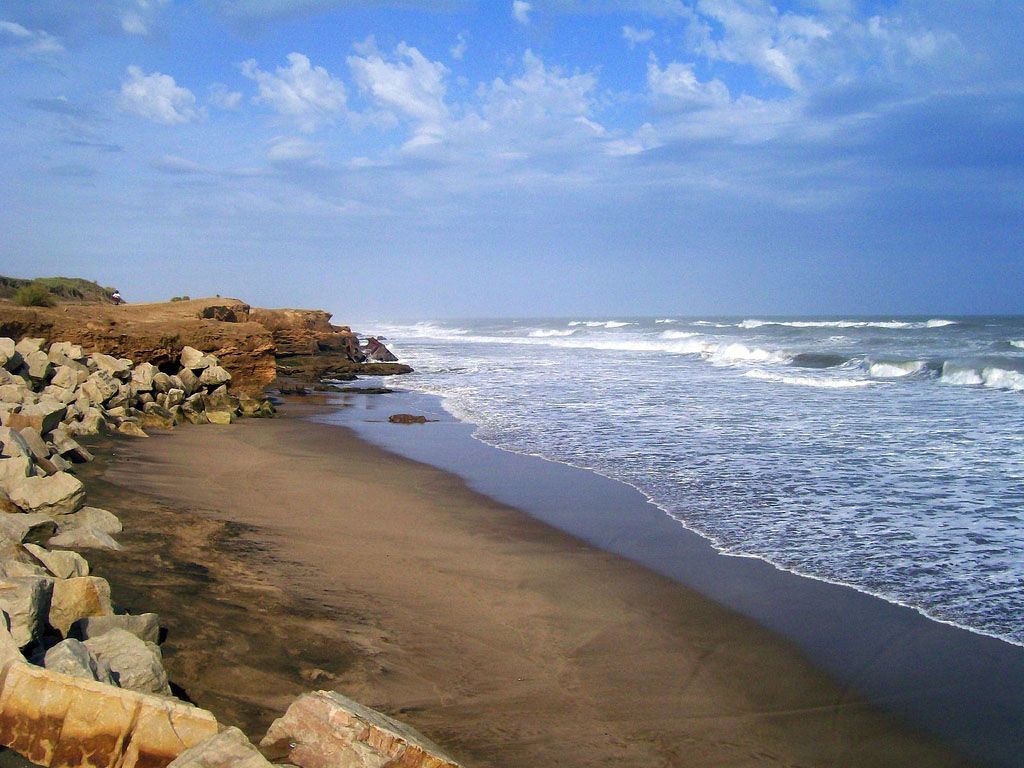
Miramar (470km / about 6 hours by bus)
Miramar is another Mardel alternative – more low-key, but still gets crowded in the summer. It’s known for its wide beach and gentle waves, which are notoriously good for surfing. Activities besides taking surfing lessons, include horseback riding, fishing and golfing.
And if you’re looking for an empty beach, Mar del Sud (or Mar del Sur) is only 16km south of Miramar. It’s more rustic, with no tall buildings, fewer services and fewer crowds. It has a black-rock beach and good spots for fishing.
BEACHES IN URUGUAY
On the other side of the Río de la Plata, Uruguay has some magnificent beaches. To get there, you can take a ferry to Colonia and then a bus. It’s a slightly longer trip, but the beaches are worth it!
How to get there: Take a ferry with either Buquebus, ColoniaExpress or SeaCat. Then you’ll have to take a bus to your final destination from the terminal in Colonia.
Punta del Este (405km / 7-8 hours by ferry and bus)
Punta del Este is the luxury beach town of Uruguay. Located on the eastern coast of the country, here you’ll find some of the most popular beaches, as well as great nightlife, a casino and many art galleries. Punta is famous for being the most expensive travel destination in the country.
La Paloma (500km / about 9 hours by ferry and bus)
Further up Uruguay’s eastern coast is the department of Rocha, where there are many small, beautiful beach towns. One of them is La Paloma, where you’ll find a lighthouse overlooking the ocean, traditional fishermen’s cottages, a nearby wetland reserve with migratory birds, sandy bays, and calm waters. The Centro Cultural La Paloma hosts many interesting cultural events.
Punta del Diablo (565km / about 9.5 hours by ferry and bus)
Punta del Diablo is almost in Brazil! This small beach town offers a very different vibe from Punta del Este. It has dirt roads, colorful houses and sweeping, clean beaches. The stable population of around a thousand are mainly fishermen and crafts people, but it’s recently become a tourism hotspot in the summer, when it can swell to almost 30,000 people! Go in the off-season (March-December) and you’ll get better prices and more beach to yourself.

